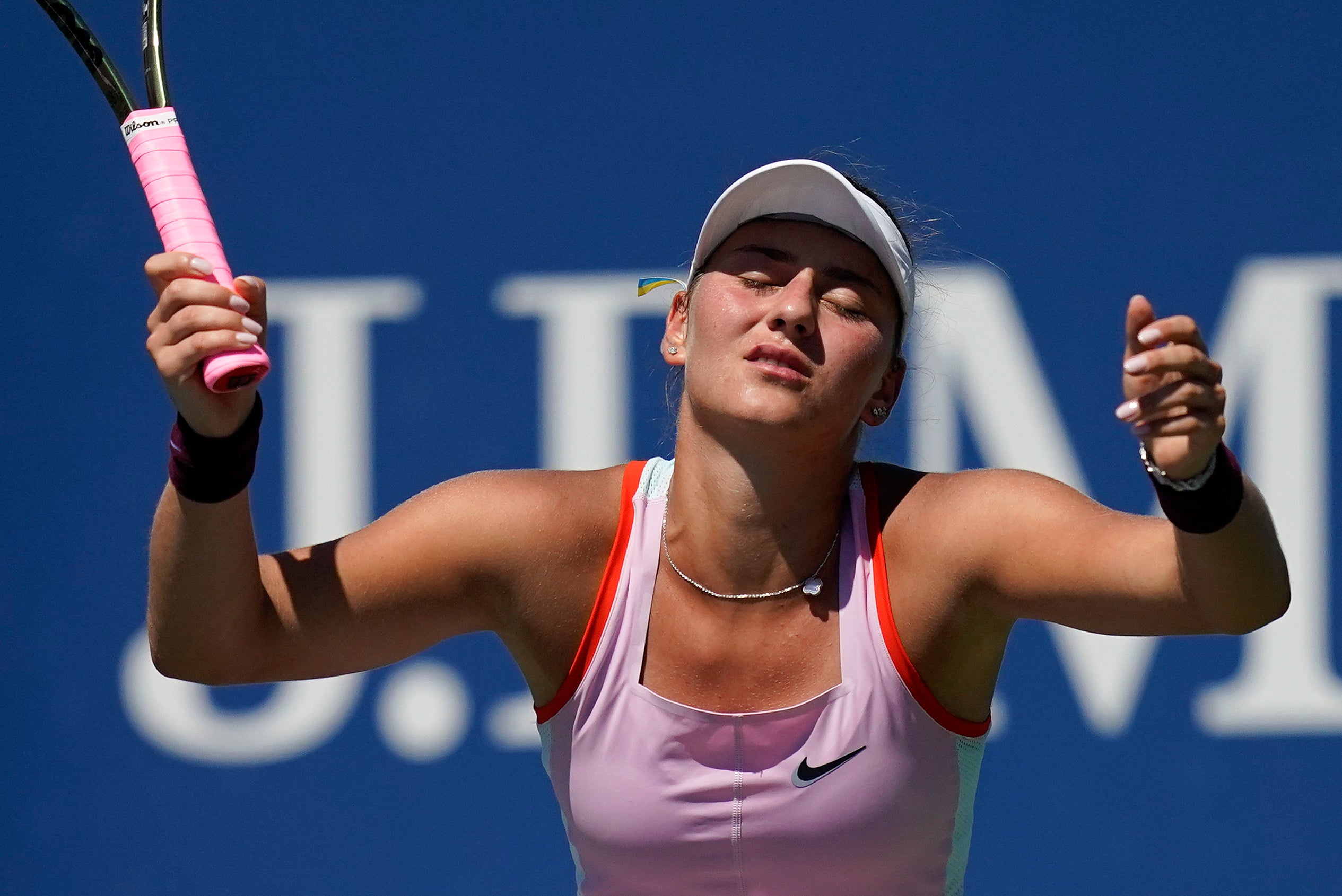Ukraine’s Marta Kostyuk rejects handshake from Belarus’s Victoria Azarenka at US Open
‘She’s a great competitor, I respect her as an athlete, but that has nothing to do with her being a human being’
Ukraine’s Marta Kostyuk on Thursday refused to shake hands with her Belarusian opponent Victoria Azarenka and instead opted for a racket tap after their second-round match at the US Open.
Kostyuk was defeated 6-2, 6-3 by Azarenka.
The 20-year-old Ukrainian has been among the most vocal critics of the lack of condemnation from Russian and Belarusian players to the invasion of her country.
“I just don’t think it’s the right thing to do in the circumstances I’m in right now,” Kostyuk said. “I don’t know any single person who condemned the war publicly, and the actions of their government so I don’t feel like I can support this.”
“We had a great match, don’t get me wrong. She’s a great competitor, I respect her as an athlete, but that has nothing to do with her being a human being.”
“People who didn’t watch the match will probably slam me and tell me, ‘She’s such a b***h, thank God Vika beat her, she talks too much, and it was a fair score’. But it was honestly a super close match.”
Kostyuk singled out Azarenka because of her profile and role on the WTA Player Council and believes she should have made more of an effort to speak personally to Ukrainian players.
Azarenka insisted she has offered help and support, saying: “I’ve offered many times through WTA, because I believe there is a sort of sensitivity. I’ve been told that that’s not a good time.
“I never had a close relationship with Marta. In March when everything happened, I reached out to all the [Ukrainian] players that I personally know and I still have a good relationship with.
“I don’t feel that forcing myself to speak to somebody who maybe doesn’t want to speak to me for different reasons is the right approach. But I offered,” Azarenka added. “I feel like I’ve had a very clear message from the beginning, is that I’m here to try to help, which I have done a lot. Maybe not something that people see. And that’s not what I do it for.”
“I do it for people who are in need, juniors who need clothes, other people who need money or other people who needed transportation or whatever. If Marta wants to speak with me – she texted me yesterday, I replied. I’m open any time to listen, to try to understand, to sympathise.”
My nation is being killed daily. Imagine there is World War Two and there is a fundraiser for Jewish people and a German player wants to play
“I know she’s going through a lot of difficult situations. It’s not easy to handle. From my perspective, I wish she had somebody who guided her a little bit better.”
Kostyuk had wanted to meet Azarenka on Wednesday to explain she would not shake her hand but the players were not at Flushing Meadows at the same time.
On the lack of handshake, Azarenka said: “I wasn’t surprised. I always shake hands with my opponents. I had the same situation with [Ukrainian player Dayana] Yastremska in Washington. I just move on. I cannot force anybody to shake my hand. It’s not the most important thing in the world right now.”

Tennis has been searching for the best way to handle the Ukraine situation. Russian and Belarusian players were banned from Wimbledon and the build-up tournaments but have otherwise been allowed to play under a neutral flag, to the disgust of Kostyuk and other Ukrainian players.
On the eve of the US Open, Kostyuk revealed she had declined to take part in a fundraiser for Ukraine at Flushing Meadows because Azarenka had been due to participate, although she was subsequently excluded from the event.
“My nation is being killed daily,” said Kostyuk. “Imagine there is World War Two and there is a fundraiser for Jewish people and a German player wants to play. During the war, not 70 years after the war. I don’t think Jewish people would understand.”
Azarenka believed her participation would have been a sign of her support for Ukraine, saying: “When you are asking, ‘you’re not doing enough, you’re not saying enough’, I thought that this was a gesture that really shows commitment. I’m not sure why it wasn’t taken in that way.”
Additional reporting by agencies






Join our commenting forum
Join thought-provoking conversations, follow other Independent readers and see their replies
2Comments